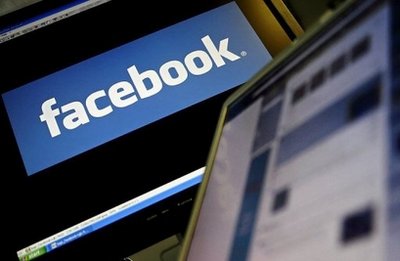Disclaimer:
The information presented in this website and the comments from Dr. Hughes are not intended to diagnose, treat, cure, or prevent any disease or psychological disorder. The information presented is not a substitute for medical, psychological or psychiatric treatment. You are advised to seek professional medical and psychological help as necessary.
Though there are some mental health professionals that have begun to consider the theory that Facebook may cause depression, it is my opinion that FB in and of itself, does NOT cause depression. That said, there is certainly plenty of opportunity for FB to exacerbate an already unstable mood. Over the past several years, I, like many of my colleagues, have spent many psychotherapy hours with patients who are, for one reason or another, very upset with topics related to Facebook.
Here are some ways that Facebook can pose a challenge to someone who is already prone to depressive symptomathology or other mood disorders:
1. “friending” and “unfriending”: When someone “friends someone else, it technically means that they have some access to whatever information you are posting. For some people, the word “friend” is misleading; many people barely know some members of their friends list while others are very choosy about who is on their list. I know of many arguments over friending and unfriending… particularly when someone friends an ex-boyfriend or girlfriend. In order to avoid this kind of hurtful misunderstanding, it’s very important to have a clear view of what friending means to you… and what it means to others in your life.
2. “The Wall”: Although most people believe that everything they write will be interpreted exactly how they want it to be interpreted (especially with emoticons for clarity!), the fact is, nearly HALF of all WRITTEN CORRESPONDENCE is MISINTERPRETED by the reader. Yes, half. That means that if someone makes a comment about someone’s status, e.g. “so happy ur having a nice day”, that could be interpreted as: 1) genuine happiness 2) jealousy 3) sarcasm or just about anything else. It is extremely easy and likely to become offended or hurt by something someone writes on Facebook, even if that wasn’t the intent. To combat all this, try to be as clear as possible when writing to others, do not be offended if someone misreads your intent, and do not be quick to assume someone’s true thoughts based upon what they write.
3. “Tagging”: Tagging can sometimes be the Facebook equivalent of gossip. It can involve words or pictures that can be embarrassing, misinterpreted, or simply personal. People can be made to feel vulnerable when information about them is suddenly open for anyone to see/read. This can absolutely lead to bad feelings which can make an existing mood disorder worse or be the impetus for a declining mood. To prevent such violations of privacy– be very careful about photos that are taken and if you are someone who sends around funny pictures of others, think first. One click of the mouse and that material is around forever.
Some psychologists have said that Facebook leads to isolation, and to that I disagree. People on Facebook may be alone in a room, but they are usually communicating with other people. I think that if anything, Facebook contributes to a different style of communication. Whereas people used to speak more conversationally, with Facebook, the only piece of conversation is the written word. In a face to face conversation, there are observations, intonations, and more flexibility with the back and forth. Facebook, like e-mail or texting or any other written communication, is a truly barren facsimile of actual interpersonal conversation. Although this may not lead to isolation, it can definitely lead to impaired social skills. Learning to relate, in person, in a live conversation, is a skill that those who are reliant upon technology do not cultivate. This ultimate lack of real-time social skills could have effects in their daily life, which could indeed influence how well they get along with others.
So does Facebook cause depression? Certainly not. Can Facebook be something that adds to stress and depression in some people? Absolutely.
Dr. Carsi Hughes received her Ph.D. in clinical psychology from Northwestern University Medical School. She is a licensed clinical psychologist who specializes in adult psychopathology, clinical neuropsychology, andpsychoanalytic psychotherapy. Academic appointments include Associate Clinical Professor of Psychology and Post Baccalaureate Pre-Medical Studies at Dominican University.








{ 2 comments… read them below or add one }
I am curious as to where you got this statistic: “nearly HALF of all WRITTEN CORRESPONDENCE is MISINTERPRETED by the reader.” I study this area and have not seen a study that has uncovered this rather strong assertion.
thanks in advance,
Dr. Larry Rosen
Professor of Psychology and Past Chair
CSU Dominguez Hills
Carson, CA
Some really wonderful work on behalf of the owner of this internet site , dead outstanding articles . virtual private server | cpanel vps |